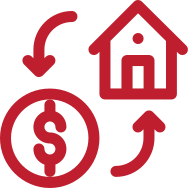Small Business Loans
Receive a lump sum of funds to use for any business purpose.
What Do You Need to Qualify for a Small Business Loan?

1+ Year in Business

$500,000+ in Annual Revenue
What Is a Small Business Loan?
A small business loan provides essential funding for entrepreneurs to tackle challenges, seize opportunities, and invest in their businesses. Here’s how:
Versatile Use of Funds: Funds can be utilized for various business purposes, such as working capital, equipment, expansions, payroll, and other investments.
Repayment Structure: Borrowers repay the principal amount plus interest within the specified loan term outlined in the agreement. The length of the term is influenced by your business needs and financial background, as well as the lender’s terms.
Choosing the Right Loan Term:
- Short-term Business Loans: Ideal for addressing immediate revenue-driving opportunities and urgent challenges.
- Long-term Business Loans: Suited for long-term investments that may not yield immediate benefits, like opening a new location or acquiring another business.
Pros and Cons of Small Business Loans
Evaluating Small Business Loans: Pros and Cons
Small business loans are a significant financial decision for any entrepreneur. Here’s a breakdown of their advantages and disadvantages to help you decide what’s best for your business:
Pros:
- Lump Sum Investment: Receive a lump sum of capital to invest directly into your business.
- No Equity Exchange: Retain full ownership of your business without giving up equity.
- Credit Building Opportunity: Timely repayment can strengthen your business credit score if the lender reports to credit bureaus.
- Build Credibility: Consistent repayments can enhance credibility and trustworthiness with your lender.
- Stable Repayment Schedule: Predictable monthly payments help with budgeting and financial planning.
Cons:
- Less Flexibility: Not as flexible as business lines of credit, which offer revolving access to funds.
- Additional Funding Needs: If more funds are required later, you may need to apply for another loan.
- Higher Interest Rates: Interest rates can be higher compared to other financing options.
- Collateral Requirement: Depending on the lender and loan type, collateral may be necessary to secure the loan.
Small business loans are ideal for projects with defined costs or for managing working capital during slower business periods. For greater flexibility, consider business lines of credit, which offer on-demand access to capital tailored to your business needs.
How Can You Apply for Small Business Loans?
Whether your small business is expanding or navigating challenges, having access to capital is crucial. Choosing the best small business loan provides the financial means to seize opportunities and overcome obstacles effectively.
Unlike selling equity, opting for a small business loan allows you to retain full ownership, profits, and complete control of your business.
With a wide array of fast small business loans available today, finding the perfect fit is essential for investing in your business’s future.
Our comprehensive lender marketplace consolidates all your options in one convenient place. Through a single application, you can receive multiple loan offers and compare them with the guidance of our expert advisors.
Applying is quick, straightforward, and won’t impact your credit score, making it easier than ever to secure the financing your business needs.
Discover the Types of Small Business Loans
Small business loans come in various forms to suit different financial needs. Here are the four primary types:
1. Term Loan
A term loan provides a lump sum of capital upfront, which the borrower repays in full by the end of the loan term. These loans can be secured with collateral or unsecured, though unsecured loans typically have stricter eligibility requirements.
2. Equipment Financing
Equipment financing is tailored for purchasing equipment. It allows businesses to spread out the cost of expensive equipment over manageable installments. This type of loan enhances purchasing power, enabling businesses to acquire assets they might not afford otherwise.
3. SBA Loans
SBA loans are backed by the Small Business Administration and offer funding amounts up to $5 million with favorable terms. They are available through SBA-sponsored lenders, such as banks, credit unions, and some non-bank lenders, making them accessible to businesses of all sizes.
4. Business Line of Credit
A business line of credit provides flexible access to capital, similar to a credit card. Entrepreneurs can draw funds as needed up to their credit limit. They only pay interest on the amount withdrawn, and with a revolving term, they can reuse repaid funds.
Choosing the right small business loan depends on your business’s specific needs and future plans. The ideal loan option aligns with your financial goals and enables you to leverage financing effectively.
How Small Business Loans Can Help Streamline Cash Flow
Cash flow is essential for sustaining your business, akin to oxygen for life. Small business loans offer a vital means to enhance cash flow.
Smooth cash flow enables you to meet crucial business expenses such as payroll, operating costs, and other bills. Moreover, positive cash flow empowers you to seize new growth opportunities and expand your business.
Every business encounters cash flow challenges at some point, like seasonal fluctuations and delayed payments from customers. Business credit cards and personal loans often fall short in providing sufficient cash to address these needs. This can leave you struggling to:
- Meet payroll obligations
- Hire additional staff
- Purchase inventory
- Cover office rent or mortgage payments
- Acquire necessary supplies
- Fund ongoing operational expenses
- Manage utility bills
- Pay taxes on time
To propel your business forward effectively, having adequate working capital is crucial to stay competitive and avoid setbacks. At NBC, we foster relationships that enable you to access the capital you require, precisely when you need it, with terms tailored to fit your business needs.
How to Use Business Financing to Grow
Every business owner aims to expand, which requires financial investment.
There are three primary ways to grow your business: reinvesting profits, raising equity, or securing small business loans or alternative financing.
Initially, reinvesting profits may seem the most cost-effective option. However, relying solely on internal funds can take years to achieve your growth objectives.
On the other hand, utilizing small business loans can often yield more immediate benefits for your business. By obtaining cash upfront, you can cover all expenses related to growth initiatives, accelerating your path to increased revenue and profitability.
Here are some ways financing can benefit your business:
Business Expansion: Financing provides the capital needed to expedite projects and scale operations. You can use funds to open new locations, hire staff, invest in marketing campaigns, upgrade infrastructure, and more.
Expense Coverage: When cash flow becomes strained, financing helps cover essential day-to-day expenses such as payroll, utilities, supplies, inventory, and travel costs, ensuring your business stays on track.
Inventory Purchases: For retail businesses, timely inventory management is crucial. Financing allows you to purchase inventory in advance, mitigating potential revenue loss and enhancing customer satisfaction.
Emergency Funds: Unexpected expenses or sudden opportunities can arise at any time. Access to additional capital ensures you’re prepared to handle unforeseen circumstances without disrupting operations.
Equipment Upgrades: Whether it’s heavy machinery or technological upgrades, financing enables businesses to invest in equipment that enhances productivity and efficiency across various sectors.
Seasonal Adaptation: Many industries face seasonal fluctuations in demand. Financing provides stability during slow periods, allowing businesses to maintain operations and prepare for peak seasons effectively.
Choosing the right financing option depends on your business’s specific needs and growth trajectory. Small business loans offer flexibility and immediate access to capital, empowering you to seize opportunities and navigate challenges with confidence.
What’s the Easiest Way to Get a Business Loan?
Applying for a small business loan at a bank can be challenging, which is why you’re here—to discover a simpler way to secure financing.
Aside from traditional banks, there’s a multitude of other small business lenders, which can make finding the perfect fit overwhelming.
Each lender offers unique programs with varying interest rates, terms, and loan amounts.
Online platforms like National streamline and expedite this process.
Our cutting-edge marketplace gathers top small business lenders in one convenient location, making it effortless for you to apply, compare options, and select the ideal loan.
The entire process is conducted online, eliminating the need for in-person meetings and allowing you to submit necessary financial information electronically, saving you valuable time during your busy day.
Eligibility Requirements for Small Business Loans
When applying for small business loans, your choice of lender is crucial, as they each have distinct guidelines, requirements, and application processes. However, the standard eligibility criteria generally include:
Credit Score – Many lenders prefer a credit score of 680 or higher. While some lenders may be flexible on credit scores, they often offset their risk through other means.
Time in Business – Lenders recognize the higher risk associated with newer businesses. Typically, banks require a business to have been operating for at least two years, while non-bank lenders may accept businesses with at least one year of operation.
Annual Revenue – The profitability of your business is a key indicator for lenders assessing your ability to repay the loan. Most lenders prefer to see at least $500,000 in annual revenue, with higher revenues potentially leading to more favorable terms.
While banks and SBA funding often require a minimum credit score of around 680, National Business Capital offers options across the credit spectrum—from good to bad credit and everything in between.
While profitability is beneficial, it’s not always a strict requirement for securing financing. Instead of solely focusing on credit scores, we also consider your annual revenue and how the funding could facilitate your business growth.
How to Get a Credit Approval for a Business Loan
Lenders must review your credit score and credit report as part of the application process. This credit check provides a comprehensive history of your credit management, helping lenders assess your likelihood of repaying financing in the future.
Your credit report includes details such as:
- Types of credit accounts you have or have had
- Dates each account was opened
- Account balances
- Payment history
- Credit limits
- Unpaid balances and bankruptcies
A “soft” credit pull does not impact your credit score, whereas a “hard” credit pull can lower your score. Soft pulls are typically used for personal credit checks or pre-approved offers. Hard credit checks occur when you apply for a credit card or loan.
Ensure the lender conducts soft credit pulls to safeguard your credit score!
Your credit score and report must meet the lender’s criteria for approval. Each lender uses different factors to assess eligibility, so it’s wise to present the strongest credit profile possible. If time allows, consider improving your credit score or resolving any issues on your credit report before applying for financing.
The rise of FinTech platforms has simplified and expedited the credit approval process for small business loans. At National, our streamlined digital application eliminates paperwork entirely. We collaborate with a diverse range of lenders who accommodate various credit profiles.
Our application process is fast and secure. After completing the online application, securely link your bank accounts through our portal with bank-grade security—your information will be verified automatically.
Finding the Best Available Loan Programs
To find the best loan offers, begin by clarifying your specific financing needs. Your ideal choice may vary depending on whether you’re seeking funds to expand your business, purchase inventory, or consolidate debt. It’s advantageous to start your search in a marketplace where you can compare multiple loan options simultaneously.
In today’s landscape, there’s a plethora of financing programs available, each tailored differently. While some programs offer quick and easy qualification processes, they may not necessarily be the most suitable for your business.
Each lender offers distinct programs, and every business has unique requirements. Therefore, it’s crucial to initiate your funding search with a clear understanding of your own needs.
Direct lenders provide a limited selection of options. Opting for a marketplace approach expands your opportunities significantly by presenting choices from numerous lenders. For instance, National’s marketplace features offerings from over 75 small business lenders.
In addition to small business loans, online marketplaces offer a variety of financing solutions. You can explore SBA loans, which are backed by the federal government through the Small Business Administration. Applying through a marketplace often streamlines this process compared to traditional bank applications.
Furthermore, you can explore alternatives such as business lines of credit, merchant cash advances, and equipment financing through these platforms.
By evaluating multiple options, you can select the financing solution that best aligns with your business objectives and financial goals.
Difference Between Secured & Unsecured Business Loans
The distinction between secured and unsecured business loans is straightforward. Secured business loans necessitate collateral, such as real estate, heavy machinery, or other assets, while unsecured business loans do not require any collateral to guarantee repayment.
When opting for secured business loans, borrowers pledge an asset or property to the lender as security in case they fail to repay the debt. Collateral reduces the risk for lenders, offering them greater confidence in recovering their funds.
Traditional banks and lenders often prefer secured loans because they mitigate their risk, which can result in lower interest rates, higher loan amounts, and more favorable terms for borrowers.
However, secured business loans come with added risks for borrowers. If you default on the loan, you could potentially lose the collateral you put up.
In today’s business financing landscape, there are options available for small business loans that do not require collateral.
Whether you have collateral to offer or not, there are financing solutions to meet your needs. We can assist you in exploring both secured and unsecured options within our marketplace.
Calculate Small Business Loan Interest Rates
When calculating the interest rate for a small business loan, lenders typically consider factors like your loan amount, financial history, and annual revenue. Beyond the interest rate, it’s crucial to think about the total payback amount when deciding on a loan.
We’ve designed a user-friendly small business loan calculator specifically for entrepreneurs like you. By inputting your estimated interest rate, loan amount, and the term length in months, you can easily estimate your monthly payments. To determine the total payback amount, simply multiply your monthly payment by the number of months.
Would you like me to remember these details about calculating small business loan payments and the importance of considering total payback amounts? It could come in handy for future discussions!
Small Business Loans 101
Small business loans operate similarly to personal loans, but they are specifically tailored for small businesses.
If you’ve ever taken out a loan, such as a student loan or mortgage, you likely understand the basics. A lender provides capital to you, the small business owner, to meet specific needs. As the borrower, you repay the loan amount plus interest over time.
The terms of small business loans can vary depending on the lender and the type of financing. Some loans have fixed interest rates, meaning your payments remain consistent throughout the loan term, while others may have variable rates that can fluctuate.
Small business owners use these funds to address various expenses, whether they’re tackling challenges or seizing growth opportunities.
Interested in exploring how a small business loan could benefit your company? Connect with a Business Financing Advisor at National to get personalized insights and guidance.
Minimum Credit Score for a Small Business Loan
Most traditional lenders, including banks, typically prefer to see a credit score around 680 as a minimum requirement, which is also common for SBA funding. A higher credit score can improve your chances of approval and qualify you for better interest rates.
If your credit score is below 680 or if your business is relatively new, a bank may reject your financing application. However, it’s important to note that not all small business lenders impose strict credit score requirements.
Facing rejection from a bank can be disheartening, but it’s worth knowing that alternative small business lenders exist that offer financing options without stringent credit score prerequisites.
At National Business Capital, we cater to businesses across the credit spectrum, offering programs tailored for those with excellent credit, poor credit, and every scenario in between. We prioritize factors such as your annual revenue and how the funding can contribute to your business growth, beyond just focusing on credit scores.
Lowest Rates, Longest Terms, & Highest Amounts

Funding Amount
Up to $100MM

Repayment
Up to 25 years

Time to Fund
1 to 7 days
How It Works!
The funding you require to achieve your full potential is
just a few clicks away.
Complete our simplified application process in minutes and securely upload your business documents with no risk involved.
Review and compare your options with guidance from our experienced team, ensuring you choose the best fit for your unique situation.
Armed with your funds, you can confidently seize opportunities and overcome challenges.

Small Business Loan FAQs
The ease of approval for small business loans can vary significantly depending on the lender. Banks and SBA loans typically have stringent requirements, making approval more challenging. In contrast, online lenders tend to be more flexible and offer a broader array of small business loan options.
To maximize your chances of securing financing, it’s advisable to apply strategically. This involves applying to both traditional bank lenders and non-bank lenders. By doing so, you can gain a comprehensive view of your eligibility and ensure you have multiple options to consider.
Most lenders will need to see a 580 to 620 credit score at a minimum to approve a business for a small business loan. Banks and credit unions are a bit more restrictive, with a 700+ minimum FICO requirement.
Some non-bank lenders work with businesses with poor credit histories. However, these lending institutions often impose higher interest rates as a trade-off.
Small business loans typically don’t feature a set minimum amount, although many lenders will only work with businesses seeking $10,000+. If you’re seeking capital below a lender’s minimum funding amount, consider using business credit cards, personal investments, or fundraising to achieve your goals.
There’s no limit to how many times you can apply for small business financing. You can even apply for additional loans while you pay off your original one. Some lenders, though, see a borrower with multiple loans as inherently risky, so you might find it challenging to secure financing if you have existing loans.
Unsecured loans have no collateral requirements, whereas secured loans are backed by collateral. Secured loans are generally easier to obtain because the collateral offering mitigates some of the lender’s risk. If the borrower were to default, the lender can seize the collateralized asset and recoup some of the lost cost.
Unsecured loans are usually preferred, but the robust eligibility requirements won’t work for every borrower. However, if an unsecured loan is what you need to achieve your goals, it’s possible to negotiate a compromise that satisfies both parties.
Secure the Best Business Line of Credit in 2024
-
Paperwork
-
Application
-
Number of Lenders
-
Service Level
-
Approval Process
-
Speed to Funding
-
Collateral Requirements
-
Business Profitability
-
Credit Score
-
Credit Check
-
3 Months Bank Statements
No Tax Returns Required -
One Page – One Minute
DocuSign -
75+
-
Business Advisor
-
Hours/Days
-
Hours/Days
-
Not Necessary
-
Not Necessary
-
No Minimum FICO
-
Soft Pull
-
2-3 Years Tax Return
2-3 Years Financials -
Lengthy
Paper Intensive -
1
-
Processor
-
Weeks/Months
-
Months
-
Always
-
Last 2 Years
-
680+ FICO
-
Hard Pull
-
2-3 Years Tax Return
2-3 Years Financials -
Lengthy
Paper Intensive -
1
-
Processor
-
Weeks/Months
-
Months
-
Always
-
Last 2 Years
-
680+ FICO
-
Hard Pull